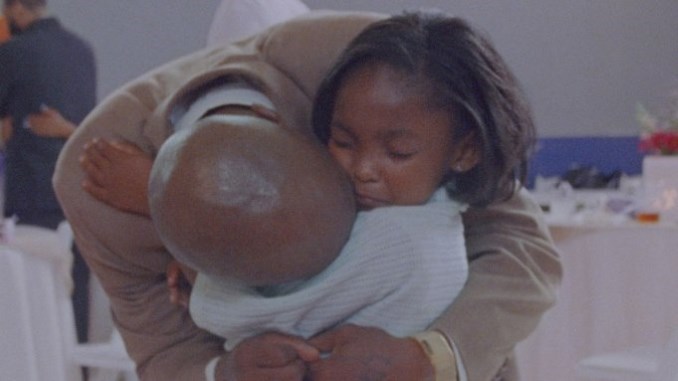Tender, Delicate and Devastating, Daughters Explores the Complexity of “Father Wounds”

For ten long weeks, men who are incarcerated in a Washington, D.C. prison eagerly anticipate a rare opportunity to reunite with their daughters in the profoundly moving documentary feature Daughters. The film from co-directors Natalie Rae and Angela Patton follows these fathers and their children as they prepare for a “Date with Dad” dance that will allow them to be reunited for six hours, a rare opportunity for physical connection as prisons across the board begin to limit in-person visitations. As part of the two-and-a-half-month lead-up to the dance, those eligible to participate complete a fatherhood coaching program, entailing an informal roundtable where the men are able to express their complicated feelings about their own upbringings and anxieties over their mandated absence. Rawly exposing the cruelty imposed upon predominantly Black children by the carceral state while also capturing the emotional whiplash of this fleeting encounter, Rae and Patton construct a visually stunning and narratively resonant portrait of love and longing.
“My dad is the third-strongest dad I know,” beams five-year-old Aubrey, a funny and precocious girl who can’t contain the excitement of seeing her father, Kevin, once again after he was arrested in their home months beforehand. “When he says he loves me, I’mma say I love him more,” she declares in her childish lilt as she sits on the couch with her mother Lashawn. Lining every corner of the living room is a framed certificate that Aubrey has been awarded at school—with math and multiplication tables being her specialty—which she racks up with ease as a tribute to her father.
Conversely, 10-year-old Santana feels betrayed by her dad, Mark, who has been incarcerated multiple times during her childhood. “I will tell him that I’m sick of seeing myself cry,” she glumly states to the camera as her mother Diamond cradles her infant sister and speaks on the phone with Mark out of earshot. “The next time you go back in jail, I’m not even going to shed one single tear.” Her upper lip curls and her eyes shoot daggers; it doesn’t help that ever since dad went back to jail, she’s been co-parenting her younger sibling and helping mom with a mountain of domestic tasks. “It’s not okay, it’s affecting me.”
15-year-old Raziah, however, directs the profound sadness of her father Alonzo’s absence inward. “I’m just getting older and soon I’ll be leaving school, graduating, all of that stuff,” her voice trembles. “I’m just scared he won’t be here to see the memories.” It isn’t until Sherita, Raziah’s mother, is interviewed that the audience understands the toll that Alonzo’s incarceration has taken on their daughter’s mental health.
-

-

-

-

-

-

-

-

-

-

-

-

-

-

-

-

-

-

-

-

-

-

-

-

-

-

-

-

-

-

-

-

-

-

-

-

-

-

-

-








































